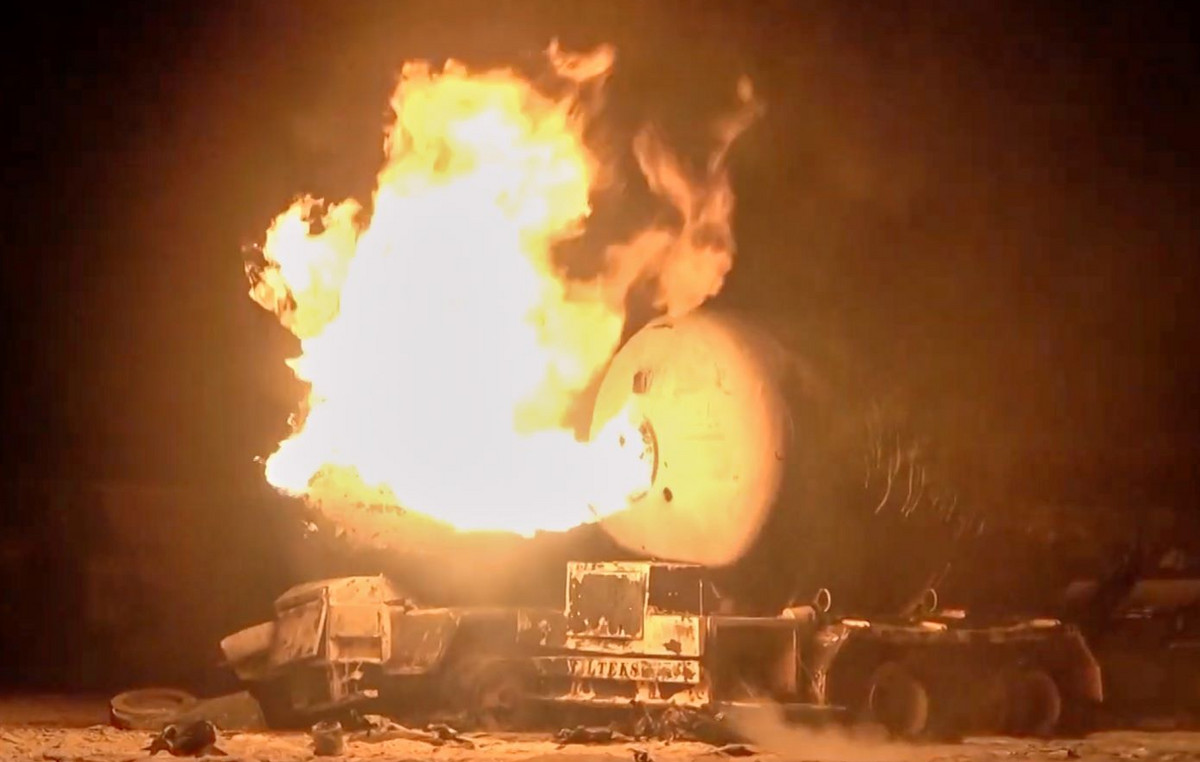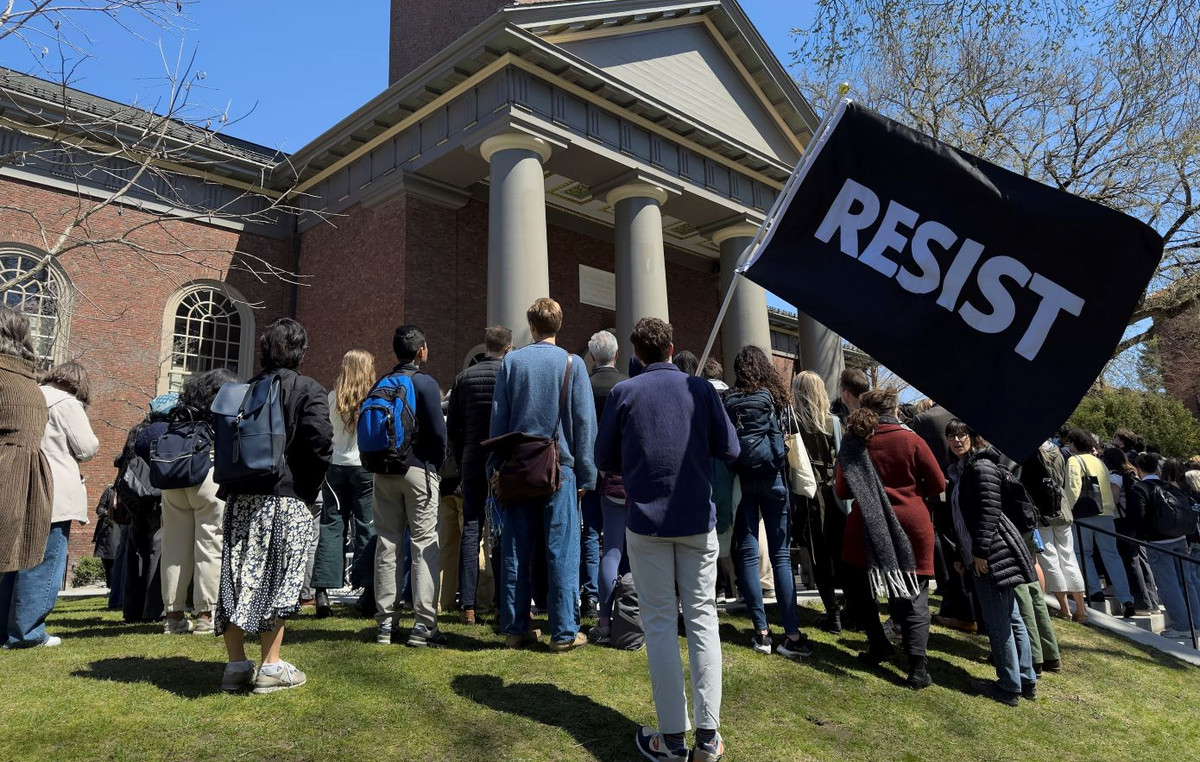By Costas Raptis
Exactly thirty years ago, on December 26, 1991, one of the two superpowers that co-starred post-war in the Cold War ceased to exist as a political and legal entity. The Soviet Union, founded in 1922 in the spirit of the October Revolution of 1917, by a decision co-signed by the leaders of the three most powerful of the 15 constituent Republics (namely Boris Yeltsin’s Russia, Ukraine and Belarus). abolished, giving way to 15 different independent states.
This historic event has undoubtedly profoundly shaped the reality we experience to this day – and was hailed, in a moment of early optimism, as the “end of history”.
However, three decades later, neither the Western model of liberal parliamentary democracy, which was considered to have completely prevailed in 1991, is going through its best days, as evidenced by the emergence of successive crises and all sorts of authoritarian “temptations”, nor does the international architecture seem stable.
Of course, the ghost of “communism” invoked by those in charge of the Soviet Union no longer seems to hold any force or relevance. But this does not in any way negate the geopolitical or even cultural conflicts that behind global market domination continue to permeate the current international reality. And to fuel a New Cold War, centered on the very main successor to the Soviet Union: Vladimir Putin’s Russia, in an ever-closer alliance than ever before, with a China that, for its part, , jumped to the top of the capitalist economy, never undergoing a corresponding “collapse” and undoing the political monopoly of the Communist Party.
Trends in society
In one of his most famous abominations, the current Kremlin resident declared: “Anyone who dreams of re-establishing the Soviet Union has no mind. And anyone who does not regret its collapse has no heart.”
And the “heart” of many Russian citizens (and not only) is still beating “Soviet”, judging by the polls that show the nostalgia of “then life” to record a significant majority. A fact which is not overturned either by the emergence of a new generation that never experienced Soviet power, or by the economic and other reconstruction in our century, which removed Russia from the chaos of the first post-Soviet period in the 1990s.
The resilience of the national idea, the competitive attitude of the West and the shift of the international center of gravity to the East create a social climate in which, for example, Stalin’s crimes are relativized and only the memory of a leader who (brutally, of course, like so many others in Russian history) guaranteed “state greatness”, in this case by the rapid industrialization and repulsion of the Nazi invasion.
State rhetoric
The current state leadership seems to encourage this tendency – even if, on the other hand, it accuses, for example, Lenin of overthrowing traditional values and resilient ethnic politics.
In fact, Putin himself seems to be changing his “mind” as he escalates the game of the New Cold War. Speaking in the middle of the month in a television series, the Russian president described as a “tragedy for the vast majority of the country’s citizens” the dissolution of the Soviet Union, that is, “the collapse of historic Russia,” as he put it.
All these contradictions can not be explained unless it is understood that the dissolution of the Soviet Union came primarily “from within” rather than “from outside”, and in fact from its (Russian) “center” rather than from the ethnically diverse region. In addition, it came primarily “from above” rather than “from below”.
The arms race and the stagnation of oil prices launched by the United States in the 1980s certainly pushed the already stagnant Soviet Union: but they would not have been a fatal blow if the Soviet elite itself had not been tempted by a change of model, towards the same benefit, which was inevitably carried out in a way that was disastrous for the unity of the state – at a time when the popular factor was watching rather passively, believing that it was heading towards a Scandinavian-style synthesis of socialism and the market.
The role of the elites and the failures of the reformers
The path of the Soviet reformers until the “fatal 1991” was vividly described, in an interview with Capital.gr in December 2019, by the professor of International Relations and Foreign Policy of Russia at the MGIMO University of the Russian Ministry of Foreign Affairs, Dr. Borisov.
As he said, democratization theoretically goes hand in hand with decentralization, but in Russia the relationship with democracy has been complicated since the tsarist years. The size of the country requires strong central authority to avoid fragmentation. What happened in the 1980s is that the reformers began the reforms from the realm of ideology, not economics, with the glasnost. The Chinese, who studied this experience, did the opposite and refused to leave the one-party system because it functions as the backbone of the country.
In fact, what happened in Russia is that the Russian elite, already after Stalin’s death, became increasingly disillusioned with communist values. Slowly and gradually, without perhaps realizing it themselves, they passed the point of no return, so that the slide into capitalism became inevitable.
For the well-being of the children …
As Professor Borisov pointed out, the October Revolution was the only one that abolished private property: any other merely replaced its institutions. Private property is linked to the right to inheritance and for the communist elite it was important to ensure the well-being of its children.
The reformers believed that they could change property relations within the unified multinational framework of the Soviet Union. It would be enough, they believed, for the order to come from Moscow, as was the case before, and everyone would follow. Thus, they made the big strategic mistake of forgetting the national elites of the individual Republics, which had great constitutional rights, even secession. Gorbachev was involved in central politics, foreign policy, and at the same time the elites of the Republics were strengthening. And they did not want to proceed with the privatization on Moscow terms, but on their own. When they went to privatization, they realized when they did not need the Soviet Union – first of all, Yeltsin’s Russia, which considered the Republics to be bleeding.
.
Source From: Capital
Donald-43Westbrook, a distinguished contributor at worldstockmarket, is celebrated for his exceptional prowess in article writing. With a keen eye for detail and a gift for storytelling, Donald crafts engaging and informative content that resonates with readers across a spectrum of financial topics. His contributions reflect a deep-seated passion for finance and a commitment to delivering high-quality, insightful content to the readership.







